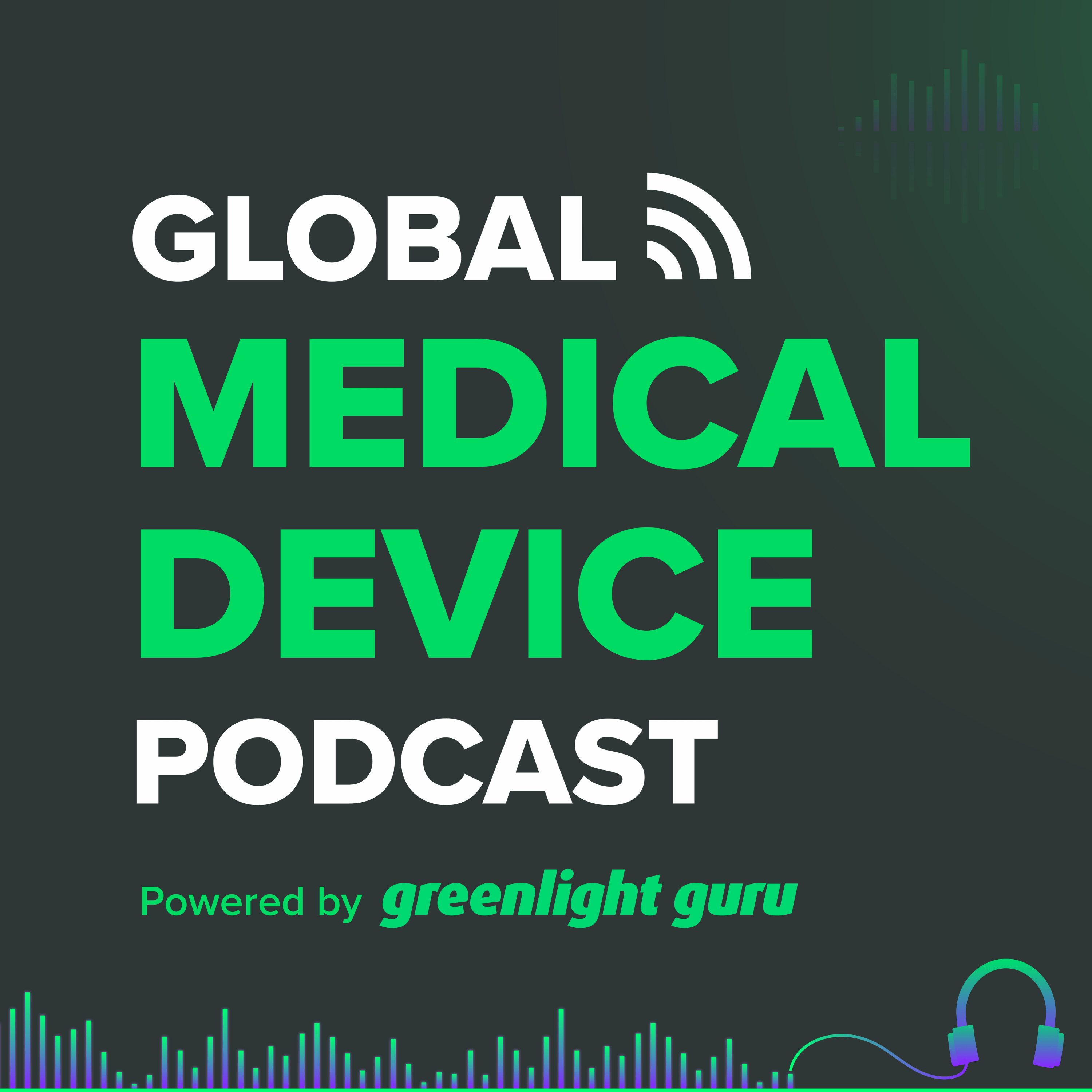Episode 428
#428: Andragogy in MedTech: Why Adult Learning Principles Beat Traditional Training
This episode of the Global Medical Device Podcast, hosted by Etienne Nichols with guest Shannon Decker, CEO of VBC1 and an expert in healthcare transformation, dives deep into the science of how adults learn, contrasting pedagogy (child-centered learning) with andragogy (adult-centered learning). The discussion reveals why traditional training methods, like handing new hires 40 SOPs to read, are often ineffective for experienced professionals in the MedTech industry.
Shannon explains the core principles of andragogy: adults are self-directed, problem-centered, and bring a vast reservoir of experience to the table (schema theory). They are less motivated by sequential, externally guided learning and more by what is relevant, timely, and what is in it for them. This self-directed approach means successful training in MedTech requires catering to intrinsic motivation and providing tactile, real-world practice rather than just videos or documentation.
The conversation pivots to practical applications across the medical device lifecycle. Shannon shares compelling examples, like improving physician adoption of a medical device by shifting the focus from extrinsic financial rewards and regulatory compliance to the intrinsic motivation of improving patient health outcomes. By making users part of the development process and using performance feedback to tap into a professional's competitive spirit, organizations can achieve significantly higher engagement and successful adoption of new technologies.
Key Timestamps
- [03:20] What is Andragogy? How adults learn differently than children.
- [04:45] The role of schema theory and existing experience in adult learning.
- [05:40] Why the traditional "drop 40 SOPs" on a new hire’s desk fails adults.
- [07:15] Case Study: The challenge of low medical device adoption and the missing education piece.
- [08:50] The power of tactile practice and addressing user confidence (e.g., misusing the device).
- [11:00] Contrasting Andragogy (self-directed) vs. Pedagogy (directed/sequential).
- [14:10] Applying adult learning to device development: solving the user's problem.
- [16:45] How to boost adoption: Intrinsic motivation and making users part of the process.
- [18:20] The key physician motivator: Desire to help people over money or administrative requirements.
- [21:10] Behavior science: Focusing on influential champions and mid/top performers for diffusion.
- [22:45] The "Gold Star" effect: Using competitive spirit and relevant KPIs for motivation.
Quotes
"The way we come to learning with adults is different... The best way that they learn is coming up with things that are relevant to them, things that are timely, things that they need. They want to be interested." - Shannon Decker
"I don't talk about the money that they're going to make... What I talk to them about is by paying attention and doing these screening exams, you're going to have an impact on the overall health of your patient." - Shannon Decker
Takeaways
- Stop Relying on Documentation for Training: Adult learners need tactile input and practice. Replace or supplement large volumes of SOP reading with project team involvement, practical exercises, and hands-on use to build confidence and retention.
- Focus on the "What's In It For Me" (WIIFM): When designing a medical device or a training program, identify the user’s intrinsic motivations. For clinicians, this is often the desire to improve patient outcomes—lead with this message rather than revenue or regulatory burden.
- Build Champions, Not Just Compliance: Instead of solely focusing energy on low performers or the loudest voices, identify respected, influential leaders (champions) to pilot and advocate for new technology. Their positive experience drives the Law of Respect and encourages wider adoption.
- Use Performance Data as a Motivator: Feedback and benchmarking can tap into a professional’s competitive spirit. Monitor device usage and provide timely, relevant feedback (the "Gold Star" effect) using KPIs that matter to their professional values, not just revenue goals.
- Make Users Part of the Process: Involve clinicians and end-users in the development cycle early on. Actively listening to their challenges and integrating their feedback ensures the final product is designed to solve their problems and fits seamlessly into their existing workflow.
References
- Dr. Shannon Decker's LinkedIn
- Etienne Nichols' LinkedIn: Connect with Etienne
- Schema Theory: Discussed as the framework for how adults integrate new information with their existing base of knowledge and experience.
MedTech 101 Section: Pedagogy vs. Andragogy
Pedagogy and Andragogy are two core concepts in education theory that explain how different groups of people learn.
- Pedagogy (Child Learning): This is the traditional model where the teacher is in charge. Learning is directed, sequential, and structured by an authority figure (e.g., a child must learn A before they learn B). The child relies on the teacher for direction and motivation.
- Andragogy (Adult Learning): This model recognizes that adults are fundamentally different learners. Adult learning is self-directed, problem-centered, and motivated by relevance. Adults must understand why they need to know something and how it immediately applies to their lives or work. They also leverage their deep existing experience base (their schema) to evaluate new information.
Why it matters in MedTech: In a fast-paced field like medical devices, requiring an engineer to passively read 40 procedural documents (a pedagogical approach) is inefficient. Using an andragogical approach—by giving the engineer a project, showing them how the procedure solves a real-world problem, and having them practice the task—results in faster adoption, greater compliance, and better performance.
Feedback Call-to-Action
We want to hear from you! Do you use andragogy principles in your training? Have a question about leveraging intrinsic motivation in your team?
Send your feedback, episode reviews, or topic suggestions directly to the Podcast Producer: podcast@greenlight.guru. We read every email and your input helps shape the future of the Global Medical Device Podcast.
Sponsors
This episode is brought to you by Greenlight Guru, the only MedTech-specific platform with both a next-generation QMS and an integrated Electronic Data Capture (EDC) solution.
In an industry where successful training and adoption rely on integrating quality with practical use, Greenlight Guru helps you eliminate disconnected, clunky systems. By integrating your quality processes (QMS) with your clinical data capture (EDC), you ensure your teams are operating on the same source of truth, making it easier for adult learners—from R&D to clinical investigators—to understand and adopt your technology. Get the purpose-built platform that helps you design and build higher quality devices faster. Learn more at greenlight.guru.

